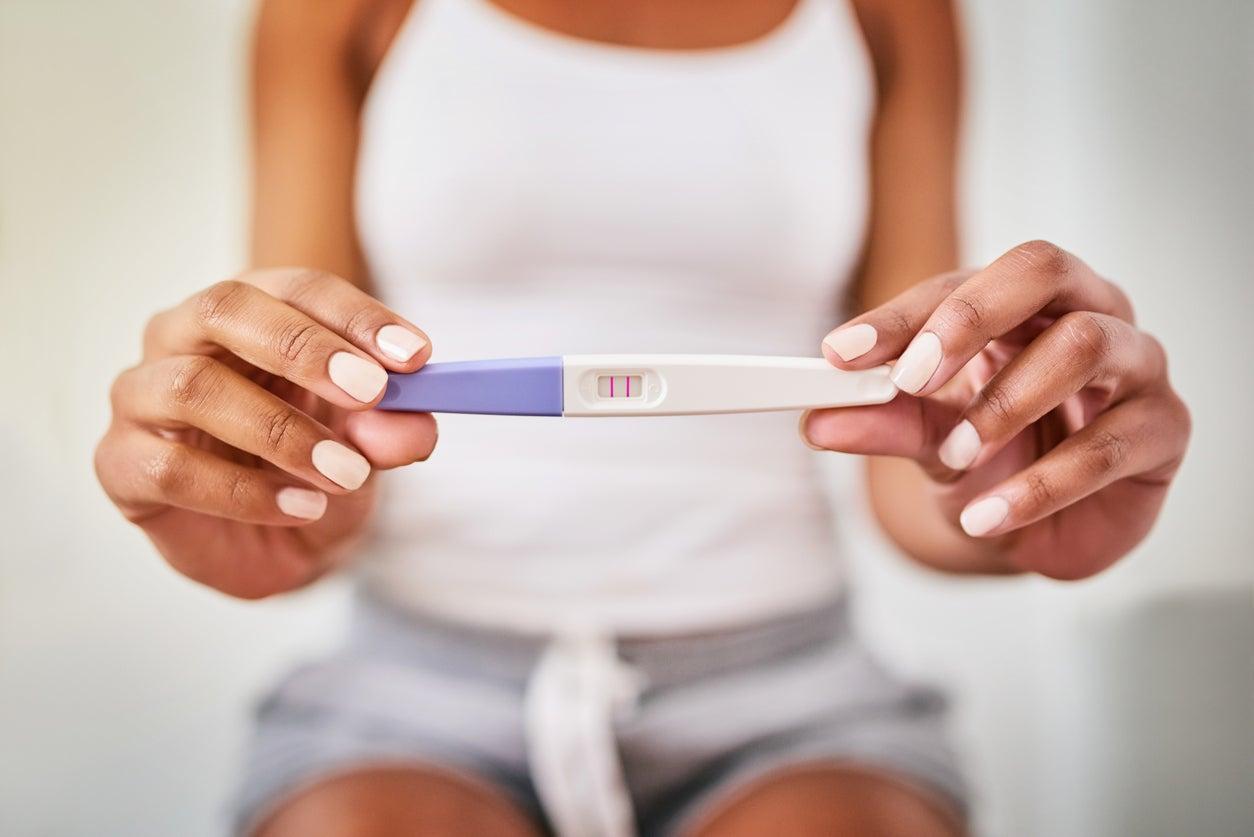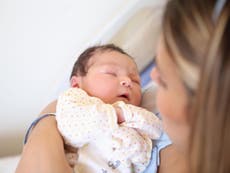Maternity services could struggle if Covid rates climb, healthcare leaders say
‘We simply don’t want to see them overwhelmed again and be forced to cut back on some services,’ says expert

Maternity services could struggle to keep running if Covid infection rates carry on climbing as restrictions ease, health professionals have warned.
The Royal College of Midwives and the Royal College of Obstetricians and Gynaecologists, which together represent the majority of NHS maternity staff, said planned home births were already being cancelled in some areas due to ambulance shortages.
Leah Deutsch, a senior registrar in obstetrics and gynaecology at the Royal Free Hospital in north London, told The Independent some women were not able to have home births during the two previous waves of the pandemic.
She added: “If people aren’t able to access a home birth like happened in both surges of the pandemic, they go for potentially more risky options such as free birth where there is no healthcare professional in attendance. In circumstances where complications arise, free births can be dangerous.”
Dr Deutsch warned that staffing levels at maternity services will decrease if coronavirus infection rates continue to rise.
She added: “In various units across London, a lot of staff - both doctors, midwives and support staff - are currently self-isolating. There are not as many boots on the ground.
“Emergency services will always be available. Rising Covid infection rates would mean potentially longer waits for appointments and cancellations of appointments in maternity services.”
Ms Deutsch said that while hospital admissions and deaths for Covid are lower than they were before, there are big issues around pregnant women choosing not to be vaccinated. She noted getting coronavirus while pregnant places women at risk of greater complications from the virus so it is very important for expectant mothers to be vaccinated.
The Independent has reported how some maternity services have been left into chaos in the wake of the Covid crisis, with some women forced to give birth alone and others forced to wear masks during childbirth.
Guidance published by the Royal College of Midwives and the Royal College of Obstetricians and Gynaecologists in July last year explicitly states women should not be asked to wear any type of face covering while giving birth as doing so can be harmful.
Gill Walton, chief executive of the Royal College of Midwives, hit out at the “small but significant minority” who refuse to wear surgical masks while in healthcare settings or ignore social distancing rules - verbally abusing and harassing staff who ask them to follow guidelines.
She added: “The number one priority of every maternity service is to keep people safe and well, whether that’s staff or those using the service. We simply don’t want to see them overwhelmed again and be forced to cut back on some services.
“Hospitals need a higher level of protection than outside them because of the concentration of vulnerable and unwell patients. Staff are also in close contact with a lot of people every shift. Our message is to respect any ongoing limitations on visitor numbers, such as around beds in bays on antenatal and postnatal wards.
“This is being done to keep you, your loved ones safe and NHS staff safe. If you can, get vaccinated. It’s safe for you and it’s safe for your baby – and even one dose will give you both some protection, even if you can’t fit both in before you give birth.”
Frontline service providers previously told The Independent the upheaval of maternity services is already creating a “mental health epidemic” among new mothers and their partners who have been left traumatised by their distressing experiences in hospitals up and down the country.
While Dr Edward Morris, president of The Royal College of Obstetricians and Gynaecologists, said: “We understand that these continuing safety measures will be frustrating for those hoping restrictions across maternity units would end, but the rising Covid-19 cases indicate that the effects of the Covid-19 pandemic will be felt for some time yet.
“We would encourage trusts to use innovative approaches to ensure the inclusion of partners throughout all stages of the maternity and postnatal journey, as this is essential for the health and wellbeing of pregnant women and their families.”
While a poll by campaign group Make Birth Better, which was previously shared exclusively with The Independent, found almost half of pregnant women who were dependant on support from a specialist mental health midwife said that help had stopped.


Join our commenting forum
Join thought-provoking conversations, follow other Independent readers and see their replies
Comments